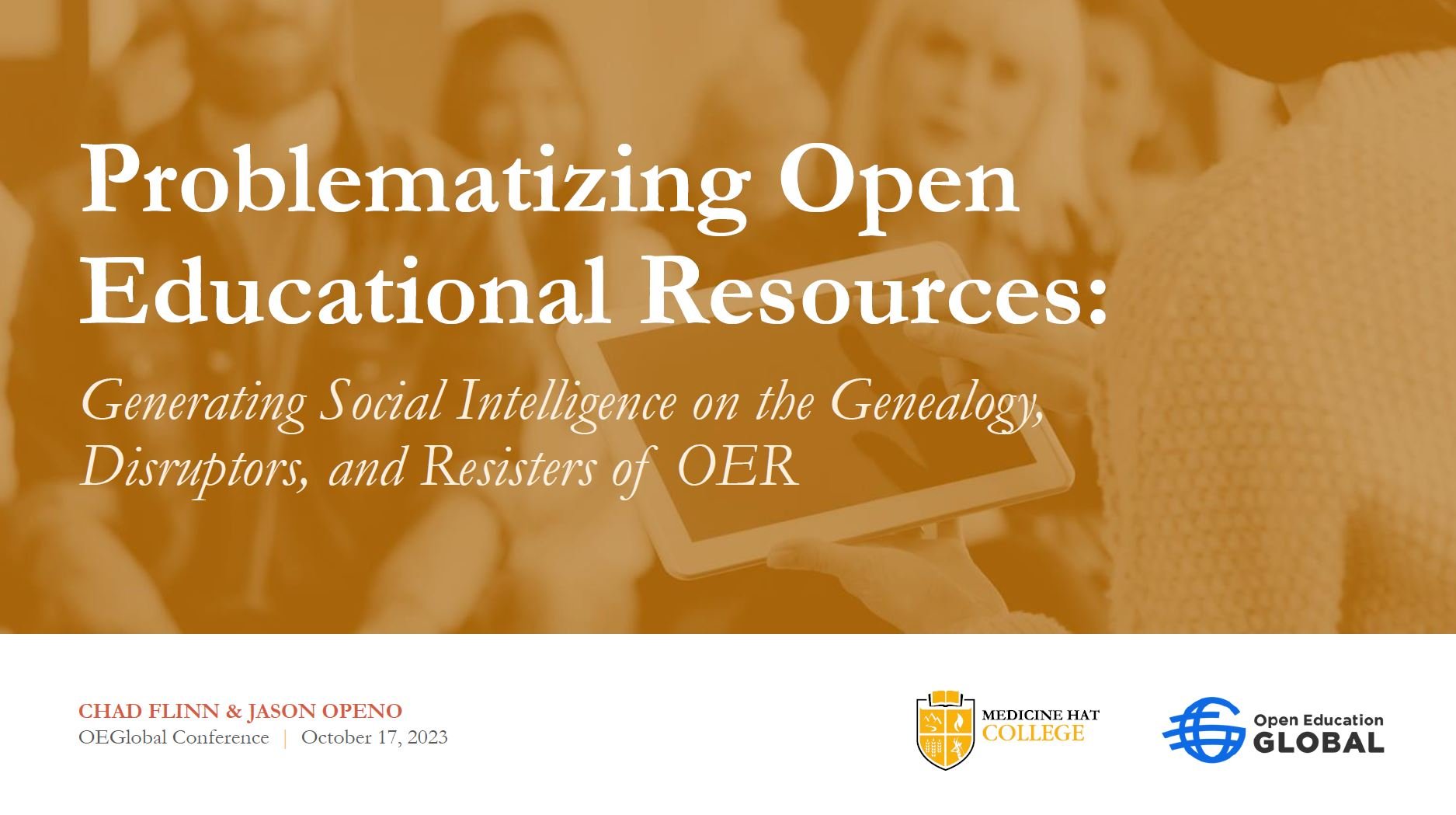On October 17, Chad Flinn and I facilitated a great conversation at OE Global in Edmonton.
This session offered series of conversations on the genealogy and disruption of OER using Bacchi’s WPR approach (What is the problem represented to be?). Social intelligence arises from lived experience under conditions of unalterable changefulness (such as the progression of educational technology, the intensification of marketization, and the pandemic) to find new opportunities to exploit cracks and fissures in structurally entrenched forms of power. This conversation engaged participants in a collaborative, multi-level dialogue of the historical and philosophical origins of Open Educational Resources (OER), the disruptors and resisters within the OER movement, and the ways in which OER has (or has not) disrupted the current understanding of educational challenges and solutions.
The OER community of practitioners can, in one respect, be seen as a social-political movement. OER represent a political movement that has emerged under conditions of structural stability and social connectedness, but a common feature of social movements is its oppositional or alternative nature. But for the past two decades, OER advocates have accomplished high profile successes, achieved mainstream legitimacy, and extraordinary growth. OER are no longer a fringe or marginal phenomenon, but in an evolving and more mature phase, what is OER disrupting and opposing?
The first movement in the session problematized the concept of OER by discussing the educational challenges OER is designed to address. Participants were asked to consider and discuss:
How do you perceive the problems OER aims to address in your educational context?
Are there any aspects of the current educational landscape you believe OER overlooks?
The second dialogue explored the genealogy of OER by considering the historical development and philosophical underpinnings of OER. Dialogue questions included:
How have OER's historical and philosophical origins shaped the current understanding?
Are there any critical milestones or thinkers significantly impacting the OER movement?
The third movement considered disruptors within the OER movement. Participants discussed the roles and motivations of disruptors, such as challenging traditional educational models and practices, promoting open access and democratization of knowledge, and encouraging innovation in teaching and learning.
The fourth and final move of the conversation pivoted to examine resistors and forms of resistance, including the protection of intellectual property rights, Traditional Knowledge Labels, copyright concerns, preserving the status quo in educational institutions and systems, and addressing concerns about the quality and sustainability of OER.
Chad and I have drafted an article submitted to IRRODL for review, and we are hopeful the conversation and our reflections will be published soon.
